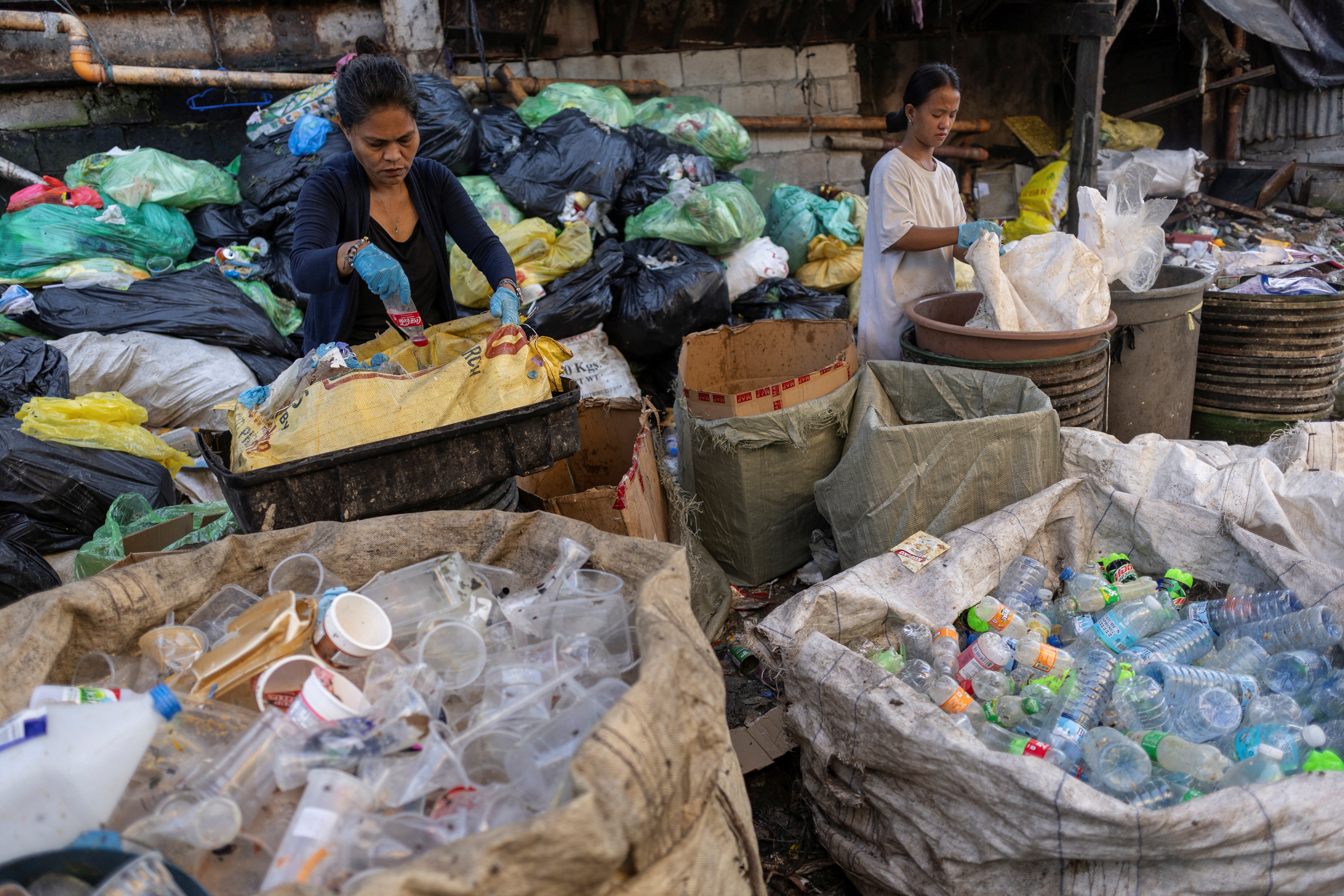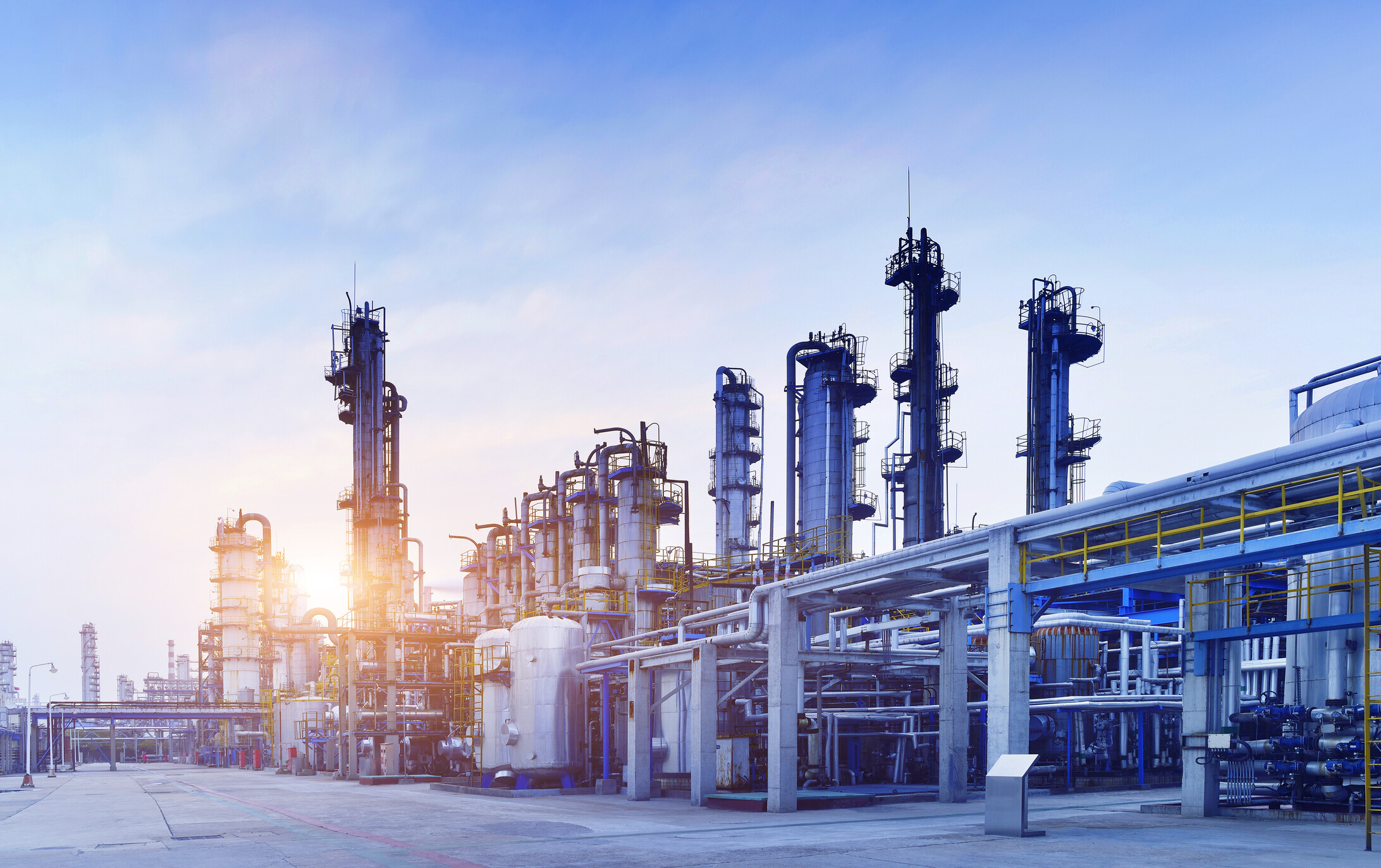A Filipino company is turning plastic waste into building materials

he Plaf gathers plastics from restaurants, companies, and consumers and transforms them into useable raw material like waterproof planks. Image: REUTERS/Eloisa Lopez
- 'The Plastic Flamingo' is a group of recyclers in the Philippines who turn items of plastic waste into building materials.
- The company's 'eco-lumber' can be used for fencing, decking or to even make disaster-relief shelters.
- It's made from waste like bottles, single-use sachets and snack food wrappers.
A group of recyclers in the Philippines is trying to ease the country's worsening plastic waste crisis by turning bottles, single-use sachets and snack food wrappers that clog rivers and spoil beaches into building materials.
The Plastic Flamingo, or "The Plaf", as they are commonly known, collect the waste, shred it and then mould it into posts and planks called "eco-lumber" that can be used for fencing, decking or even to make disaster-relief shelters.
"(It) is 100% upcycled material, 100% made from plastic waste materials, we also include some additives and colorants and it is rot-free, maintenance-free, and splinter-free," said Erica Reyes, The Plaf's chief operating officer.
Having collected over 100 tonnes of plastic waste to date, the social enterprise is doing its bit to address a local problem that has global ramifications.
Approximately 80% of global ocean plastic comes from Asian rivers, and the Philippines alone contributes a third of that total, according to a 2021 report by Oxford University's Our World in Data.
The Philippines does not have a clear strategy on tackling its plastics problem and its environment department has said it has been in contact with manufacturers to identify ways to manage waste.

COVID-19, though, has made the battle against plastic waste harder to win.
Some 300 million tonnes of plastic waste are produced annually, according to the United Nations Environment Programme, a problem that has been exacerbated by the pandemic which sparked a rush for plastic face shields, gloves, takeaway food containers and bubble wrap as online shopping surged.
What is the World Economic Forum doing about plastic pollution?
"People are unaware of how to dispose of these plastics," said Allison Tan, The Plaf's marketing associate.
"We give that avenue that instead of putting it in landfills or oceans...you give it to recycling centres like us and we would upcycle them into better products."
As well as tackling waste problems, the group says it is in talks with other non-government organisations to help rebuild houses destroyed by typhoons using their sustainable building materials.
Don't miss any update on this topic
Create a free account and access your personalized content collection with our latest publications and analyses.
License and Republishing
World Economic Forum articles may be republished in accordance with the Creative Commons Attribution-NonCommercial-NoDerivatives 4.0 International Public License, and in accordance with our Terms of Use.
The views expressed in this article are those of the author alone and not the World Economic Forum.
Stay up to date:
Plastic Pollution
Related topics:
Forum Stories newsletter
Bringing you weekly curated insights and analysis on the global issues that matter.
More on Circular EconomySee all
Felipe Basso
November 13, 2025








